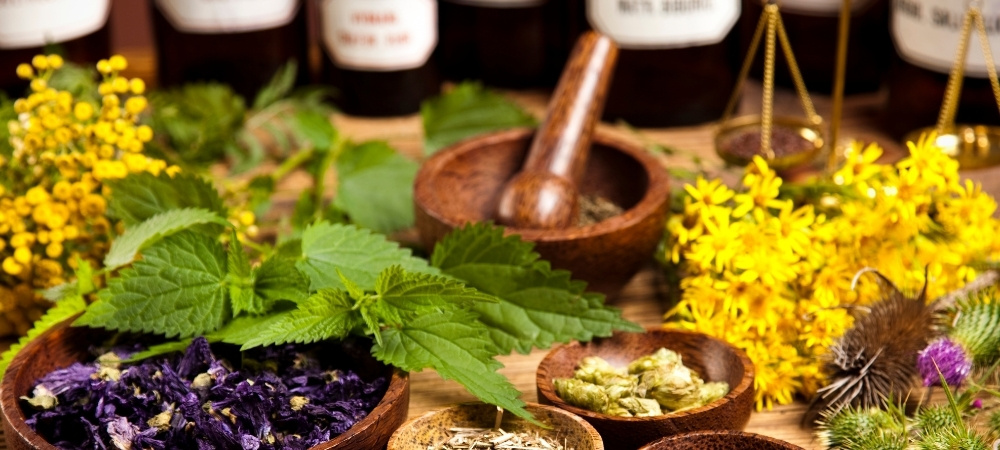Written by Jean Dow, Medical Herbalist and Functional Medicine Practitioner, Cogmission Ltd
At Cogmission, our mission is simple: to improve brain health through a proactive, preventative, and personalised approach. While nutrition, movement, stress resilience, and cognitive training are central to our programmes, herbal medicine offers a powerful yet often-overlooked avenue to support brain function—especially when integrated with a functional medicine model.
I’d like to introduce you to two of my favourite herbal allies for cognitive wellbeing: Centella asiatica (Gotu Kola) and Rosmarinus officinalis (rosemary). Drawing on traditional knowledge and modern research, we’ll explore how these herbs can support memory, focus, circulation, and neurological resilience across the lifespan.
Why herbs for brain health?
In functional medicine, we look beyond symptoms—such as brain fog, forgetfulness, or mood changes—and explore the root causes. When it comes to cognitive health, contributors may include oxidative stress, inflammation, poor circulation, mitochondrial dysfunction, hormonal imbalances, and nutrient deficiencies.
Herbal medicine can address many of these pathways simultaneously, offering multi-layered support that is both therapeutic and nourishing.
Let’s explore how Centella asiatica and rosemary fit into this integrative model.
Centella asiatica (Gotu Kola): the herb of longevity and nerve repair
Used for centuries in Ayurvedic and Traditional Chinese Medicine, Centella asiatica is revered as a brain tonic that enhances memory, learning, and mental clarity. It’s often referred to as the “scholar’s herb” in traditional systems due to its cognitive-enhancing properties.
Functional benefits
- Neurogenesis and nerve repair: Promotes growth of neuronal dendrites and axons, supporting brain repair and regeneration.
- Supports BDNF: Emerging research suggests it may increase brain-derived neurotrophic factor (BDNF), essential for learning, memory, and neuroplasticity.
- Anti-inflammatory and antioxidant: Helps reduce oxidative stress and neuroinflammation, both linked to cognitive decline.
- Calming and anti-anxiety: Supports the nervous system, promoting calm and clarity—important for memory and executive function.
When I might use it
- Age-related memory changes
- Recovery from brain injuries or post-viral cognitive symptoms
- Anxiety-related brain fog
- Early signs of cognitive dysfunction
- Mental and emotional depletion
Centella is a gentle yet intelligent herb, ideal for those needing support in restoring mental energy and calm.
Rosemary (Rosmarinus officinalis): the stimulating memory enhancer
“Rosemary for remembrance” isn’t just poetic folklore. With its invigorating scent and powerful chemistry, rosemary is a classic herb for clarity, alertness, and recall.
Functional benefits
- Enhances cerebral circulation: Improves blood flow to the brain, increasing oxygenation and nutrient delivery—key for concentration and mental endurance.
- Improves cognitive performance: Inhaling rosemary essential oil has been shown to support speed and accuracy in memory tasks.
- Neuroprotective properties: Contains carnosic acid, a compound that helps protect brain cells against beta-amyloid toxicity.
- Mitochondrial support: May help improve mitochondrial efficiency, supporting brain energy and cellular function.
When I might use it
- Brain fog and mental fatigue
- Low motivation or sluggishness
- Perimenopausal and menopausal memory lapses
- Post-viral or chronic fatigue
- Enhancing study and work performance
It’s a versatile herb—used as tea, tincture, culinary ingredient, or essential oil—and widely accessible.
Integrating herbal medicine into functional brain health
At Cogmission, we support clients by addressing the root causes of cognitive decline—such as blood sugar dysregulation, gut dysbiosis, inflammation, nutrient depletion, and chronic stress. Herbs like Centella and rosemary can be used to enhance and complement these wider care plans.
Herbal medicines are most effective when used personally and intentionally—tailored to the individual rather than a one-size-fits-all solution. This is where functional testing and clinical insight meet the wisdom of traditional herbal practice.
Final thoughts
Herbal medicine offers a rich tradition of cognitive support—much of which is now being validated by modern science. At Cogmission, we bring together ancient herbal knowledge and functional medicine to create integrated, personalised care plans that promote brain health at any stage of life.
If you’re curious about how Cogmission could support your memory, mood, or focus, we would love to explore it with you.
General note: Herbs can interact with medicines and may not be suitable for everyone (e.g., pregnancy, certain medical conditions). Please seek personalised advice before starting any new herbal regimen.

